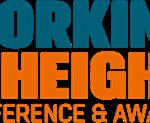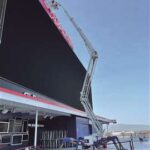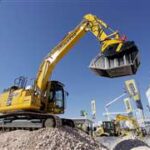Forklift Buying Guide: Electric, LPG, and Diesel Pros and Cons at a Glance
Forklift Buying Guide: Electric, LPG, and Diesel Pros and Cons at a Glance
If you’re considering buying a forklift or just curious about which type suits your needs best, you’re in the right place. Today, we’ll break down the pros and cons of electric, LPG, and diesel forklifts to help you make an informed decision.
General Pros and Cons of Forklifts
Forklifts are essential tools in modern logistics and warehousing, but they come with their own set of advantages and disadvantages.
Pros:
- Efficiency: Forklifts are much faster than manual labor, whether indoors or outdoors.
- Heavy Lifting: Forklifts can easily lift loads weighing several tons, something humans can’t do.
- Improved Safety: Compared to traditional pulley and cable systems, forklifts significantly reduce the risk of accidents.
- Maneuverability: Forklifts can operate in tight spaces, making them ideal for various warehouse environments.
Cons:
- High Costs: Forklifts are expensive to purchase and maintain, especially electric models.
- Maintenance Required: Like any machine, forklifts need regular upkeep to avoid breakdowns.
- Training Needed: Operating a forklift requires specialized training and certification, which adds to the cost.
Electric Forklift Pros and Cons
Electric forklifts are the go-to choice for indoor operations, but they have their limitations.
Pros:
- Zero Emissions: Electric forklifts don’t produce harmful gases, making them ideal for industries like food and pharmaceuticals.
- Quiet Operation: Electric forklifts run almost silently, perfect for noise-sensitive environments.
- Low Maintenance: With no engine, electric forklifts have fewer maintenance needs.
Cons:
- High Upfront Cost: Electric forklifts are more expensive to purchase than LPG and diesel models.
- Battery Life: Batteries need regular replacement, adding to long-term costs.
- Not Ideal for Outdoors: Unless specially designed, electric forklifts can be damaged in wet or extreme conditions.
LPG Forklift Pros and Cons
LPG forklifts are versatile for both indoor and outdoor use, but they come with some caveats.
Pros:
- High Lifting Capacity: LPG forklifts can handle heavy loads with ease.
- Cost-Effective: They are cheaper to buy upfront compared to electric forklifts.
- Operational Flexibility: LPG forklifts work well in both indoor and outdoor settings.
Cons:
- Emissions: While cleaner than diesel, LPG forklifts still produce some harmful gases.
- Shorter Lifespan: LPG forklifts generally don’t last as long as electric models.
- Fuel Hazards: LPG is flammable, requiring careful handling during refueling.
Diesel Forklift Pros and Cons
Diesel forklifts are ideal for heavy-duty outdoor work, but they have their downsides.
Pros:
- Durability: Diesel forklifts are built to withstand tough conditions like construction sites or farms.
- High Lifting Capacity: They can easily move extremely heavy loads.
- Easy Refueling: Diesel forklifts can be refueled quickly, making them suitable for long shifts.
Cons:
- Pollution: Diesel forklifts emit harmful exhaust, which is bad for the environment and human health.
- Noisy Operation: They are louder than electric and LPG models, making them less suitable for quiet indoor environments.
- High Costs: While cheaper than electric forklifts, diesel models still have high maintenance and fuel costs.




